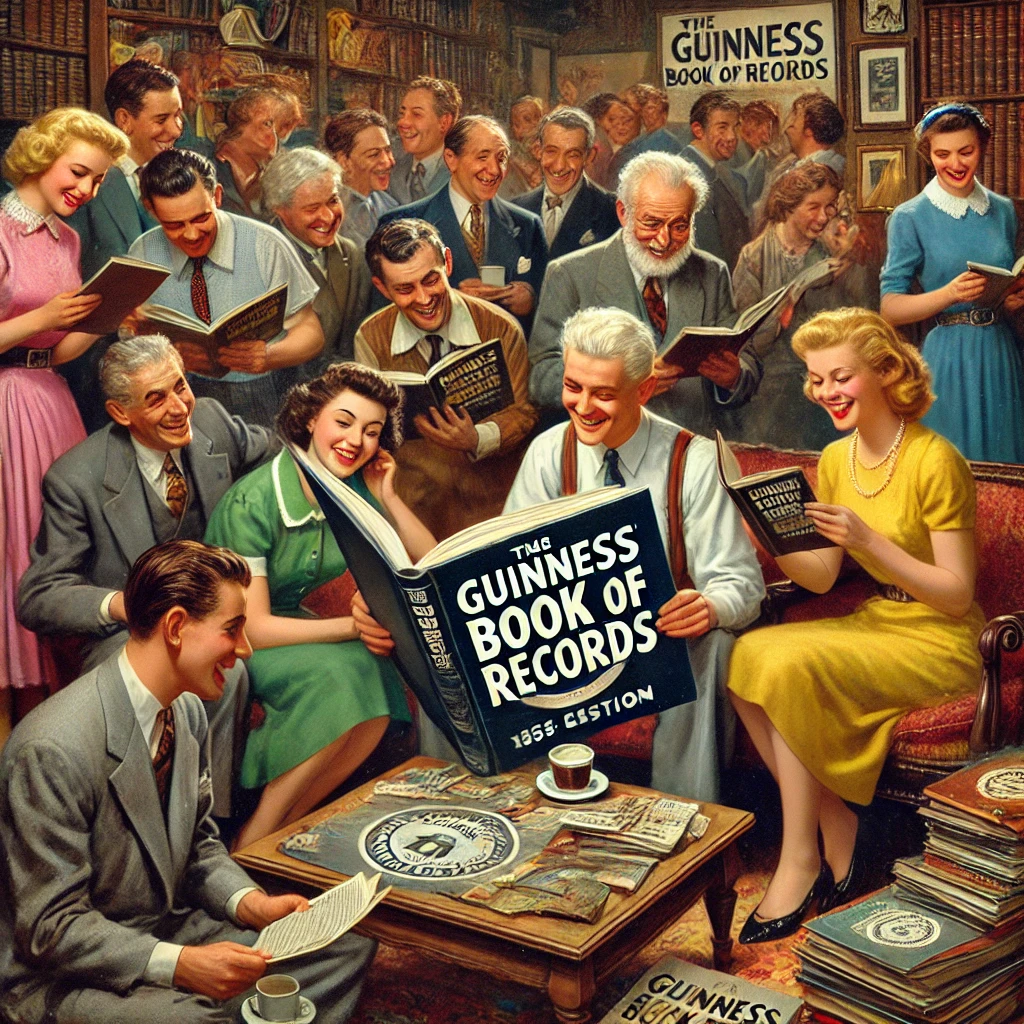On August 27, 1955, The Guinness Book of Records was first published, marking the inception of a global sensation that would become an integral part of popular culture. The concept originated with Sir Hugh Beaver, then the managing director of the Guinness Brewery, who sought to settle a debate about the fastest game bird in Europe. This inspired Beaver to create a comprehensive reference book that would not only resolve such disputes but also celebrate remarkable achievements and extraordinary feats. Initially conceived as a marketing tool to promote the Guinness brand, the book quickly resonated with readers and grew beyond its commercial intent.
The inaugural edition of the book was a modest but groundbreaking publication. It featured a diverse array of records, from the highest mountains to the fastest animals, all presented in an engaging and accessible format. The book’s unique concept and captivating content struck a chord with the public, and it soon became a beloved reference, celebrated for its ability to entertain and inform. The success of this first edition laid the foundation for what would become an enduring global phenomenon.

The Evolution of the Record Book
Since its debut, The Guinness Book of Records has undergone significant evolution. What began as a single volume of extraordinary records has expanded into a yearly publication with numerous editions and variations published around the world. The book has continually adapted to include an ever-broadening range of categories, from human achievements and natural wonders to technological marvels and unusual feats. Its format has evolved to incorporate color photography, detailed entries, and updated records, reflecting changes in both public interests and technological advancements.
The expansion into digital media has further broadened the book’s reach. Beyond the print editions, the Guinness World Records has embraced online platforms, including a robust website, social media presence, and television specials. This digital transformation has allowed the brand to engage with a global audience, celebrate records in real-time, and maintain its relevance in the rapidly changing media landscape. The adaptability of the Guinness World Records ensures its continued popularity and impact.

The Global Impact and Legacy
The influence of The Guinness Book of Records extends well beyond its origins as a marketing tool. It has become a global icon of record-breaking achievement and human potential. The book’s ability to inspire individuals to strive for excellence and push the boundaries of what is possible is a testament to its lasting impact. It has fostered a culture of curiosity and competition, motivating people from all walks of life to pursue and achieve remarkable feats.
August 27th marks the anniversary of a publication that has captured the imagination of millions around the world. The Guinness World Records continues to celebrate extraordinary accomplishments and remains a significant part of popular culture, representing the spirit of human achievement and the quest to surpass limits. The legacy of The Guinness Book of Records is reflected in its enduring popularity and its role in inspiring future generations to pursue greatness and explore the extraordinary.

Today, The Guinness World Records is more than just a book; it is a global brand that reaches millions through various media channels, including television, social media, and live events. It serves as a platform for celebrating human achievement, creativity, and perseverance across diverse fields. The record-breaking spirit continues to inspire new generations to set and break records, driving innovation and pushing the boundaries of what can be achieved. The ongoing success of the Guinness World Records exemplifies the enduring fascination with extraordinary accomplishments and the human desire to challenge limits and make history.
